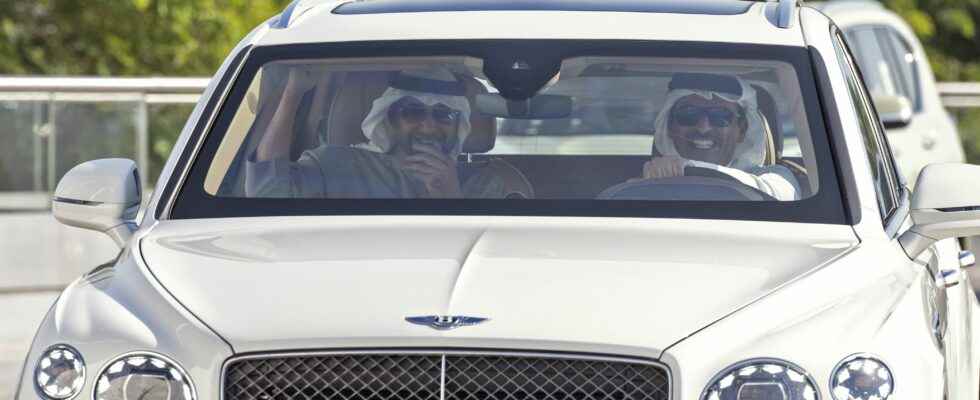The capital Doha draped in green after Saudi Arabia’s win over Argentina; Saudi Prince Mohammed bin Salman (aka MBS) with a pro-Qatar scarf around his neck; the enemies Erdogan and Al-Sissi shaking hands on the sidelines of the opening ceremony or even the Qatari Emir Al-Thani driving a Bentley with the Emirati President Mohammed bin Zayed (alias MBZ) in the passenger seat… No doubt: in Qatar, during the World Cup, Gulf diplomacy scored goals after goals.
In Qatar, “an unprecedented effervescence between rival neighbors”
Since the kick-off, the terrible neighbors of the Gulf have multiplied the proofs of love and cohesion. A true European Union, Middle East version. “It was far from a foregone conclusion, but this World Cup has clearly taken on a regional flavor, recognizes Danyel Reiche, author of Qatar and the 2022 FIFA World Cup: Politics, Controversy, Change. Qatar not only hosts the leaders of the Gulf, but also tens of thousands of Saudi or Emirati supporters. On the spot, we feel an unprecedented effervescence between these rival neighbors.
The turnaround, even in appearance, is spectacular. Two years ago, Qatar was still under a total embargo from its main neighbors, put in place by Saudi Arabia and the United Arab Emirates. The latter could not stand Doha’s proximity to the Islamism of the Muslim Brotherhood, its privileged relationship with Iran, its influence in the Arab world thanks to its Al-Jazeera television channel or its international influence, in particular thanks to the World Cup. of football. “Saudi Arabia and the countries that organized the blockade of Qatar had not included the World Cup in their list of demands, but they intended to withdraw the event from it, underlines Danyel Reiche. The very fact that this tournament takes place, despite the blockade, despite the pandemic, despite the criticism, is a success in itself.”
Despite four years of embargo, Qatar has held firm, in particular thanks to material support from Turkey and the West. The lifting of the blockade in January 2021 was done with great fanfare, with a photo of reconciliation in the Saudi desert after a meeting of the Gulf Cooperation Council. The subjects of conflict between neighbors have not however disappeared: Qatar has not yielded to any demands of the blockade, it remains close to both the Muslim Brotherhood and Iran, while tensions remain at their highest between the Tehran regime and the Saudis. “Football offers beautiful images of joy and friendship between peoples, but political conflicts in the Middle East are not played out at this level”, explains a diplomat from the region.
Solidarity in the face of criticism from the West
This unit is not display only. The Gulf countries took very badly the avalanche of criticism received by Qatar for its management of human rights, suspicions of corruption and its relationship to the environment. “The Europeans bombarded Qatar with such criticism that they drew a reaction of solidarity from the Gulf Cooperation Council and the Arab League, asks Gerd Nonneman, professor of international relations at Georgetown University in Doha. They feel that these are attacks on their model of society as a whole, since they impose essentially the same rules. It is an interesting turn.
The World Cup is keeping its promises for Qatar for the moment, with a rather fluid organization and critics who are gradually giving way to football. Saudi Arabia, of which 250,000 supporters would have made the trip to the emirate, is watching the event with relish. Riyadh is considering more and more seriously to present its candidacy for the organization of the 2030 World Cup, in partnership with Egypt and Greece. With a little jealousy no doubt, but also a way of following the path opened by its little neighbor Qatar.
